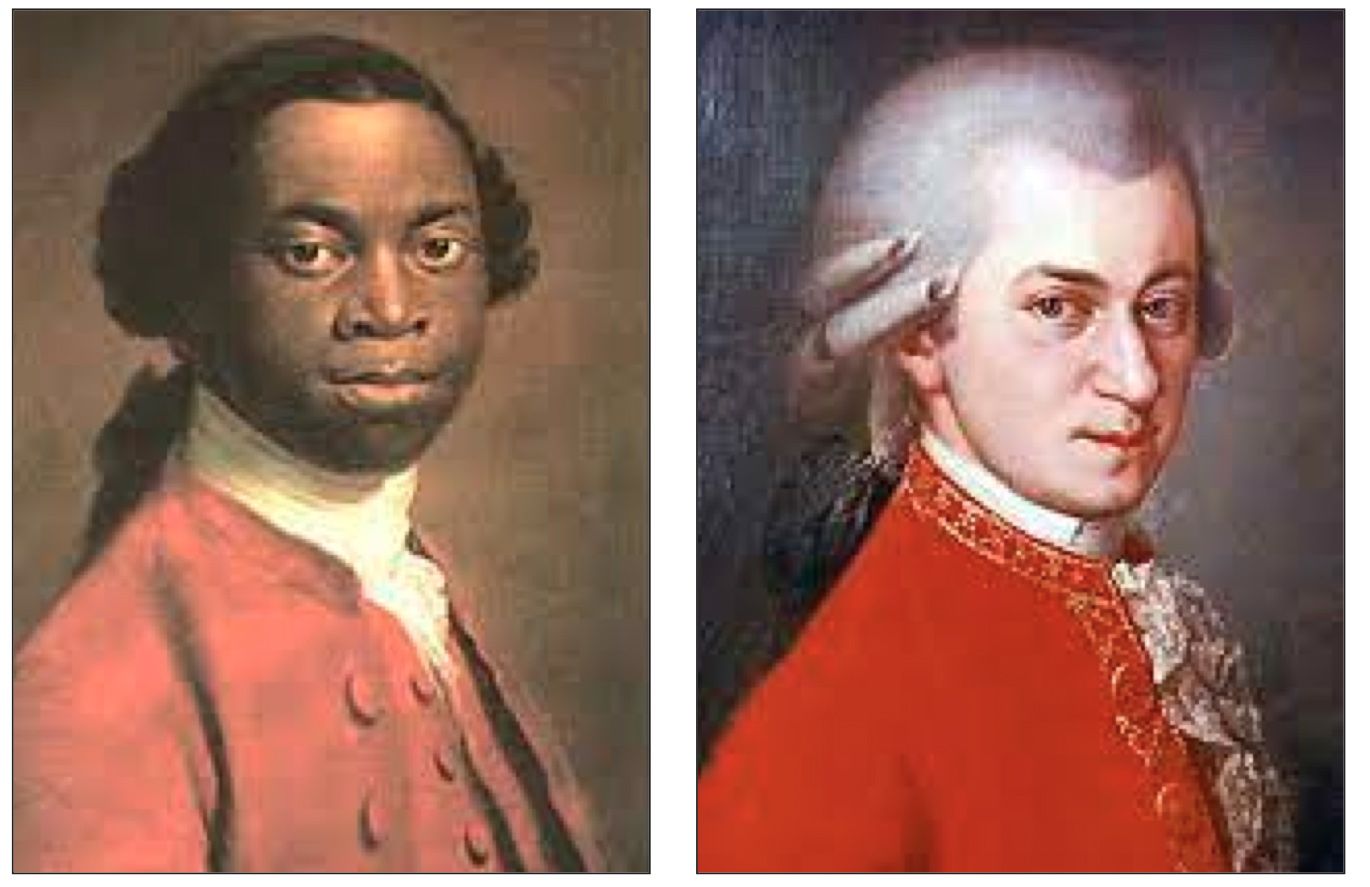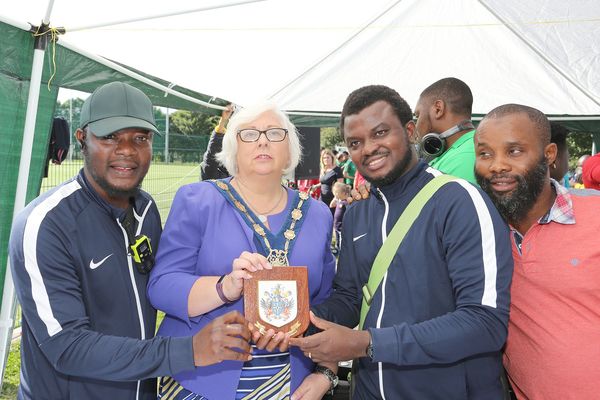IS there such a thing as Westernisation? Is it a culture? What is the opposite of this animal? Easternisation? Northernisation? Southernisation?
I don't know.
Let us talk culture. We all make broad claims about it, that there is African culture and on the other side, a Westernised model of doings things. So we use broad terms to describe these situations. There are very many fine lines between cultures, yes, but there are also very extreme differences between these things. For example, not many Africans will purchase the classical titles of Wolfgang Amadeus Mozart. The only thing he shared with another prominent person from Africa during the same period, 18th century,was the hairstyle. The Beninian, Olaudah Equiano, if not for being a young black man uprooted from his country in West Africa and enslaved in the Americas, could have been the prolific musicologist Mozart.
Just compare the faces of the two writers,they look so much the same, except colour. Their hairstyles unite the two. Both were made for big things: Equiano, a pioneer abolitionist who travelled in Europe, especially Britain and Ireland (he lodged with Samuel Neilson at what is now the Northern Whig in Belfast) while Mozart was busy composing ink-messy manuscripts that took the world by storm.
One can comfortably say that Mozart and Equiano were interested in protecting their cultures, one with music, the other one by using his biographical work to demand the end of the evil trade in fellow humans. Equiano knew the cultures of his fellow black men, Africans exported to the West were under threat. Equiano's fourth publication of his autobiography was published in Dublin during his stay there.
At the time the subculture that would have been under threat in the eyes of Mozart was his music. He blamed the establishment for opposing his art. However, a lot of the classical works by European composers of the 17th, 18th and 19th centuries paid a lot of respect to racist ideology. Richard Wagner, for example, blamed the Jews for anything wrong that was happening in the arts and music. Most of Wagner's work does not sell and in fact is unofficially banned in Israel. This is also an irony of the landscape of music, art and culture because, while proscribing Wagner, most right-wing Israeli government figures have expressed their racist policies against minority tribes there and the Palestinians continue to be under subjugation.
Culture and defending culture can be a ruthless and complicated affair because everyone is at it, either consciously or subconsciously. When others think that their version of culture is not being heard they must use misleading and inappropriate language. A person who says, ‘This is my country, respect my culture and way of life’ is actually vindicated because patriotism is not a bad thing if it is harmless. Humans will fight for their cultural identity. However, cultural identity is not a universal, uniform way of thinking. To test this claim, I would say football fans in the UK and Ireland support different clubs because of that democracy of culture. It is important then that those who fight for their culture to be respected must also individually do the same to other cultures. This is a better way of driving cultural diversity to the right destination.
If we all pretend we know one another's culture, like one of my colleagues who cannot pinpoint to Timbuktu in an atlas but claims to be the expert geographer, we are wasting our time. We should research where we all come from, the internet serves that purpose.
Today, nobody should be ignorant about places and cultures.
• Elly Omondi Odhiambo is a writer based in Belfast. ellyomondi@gmail.com








